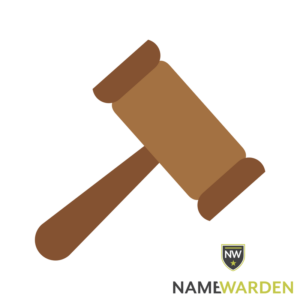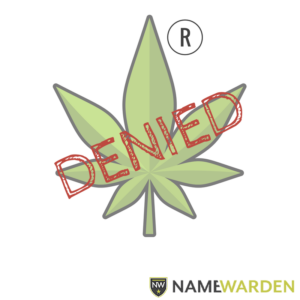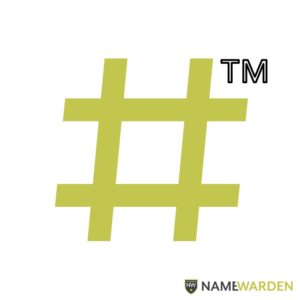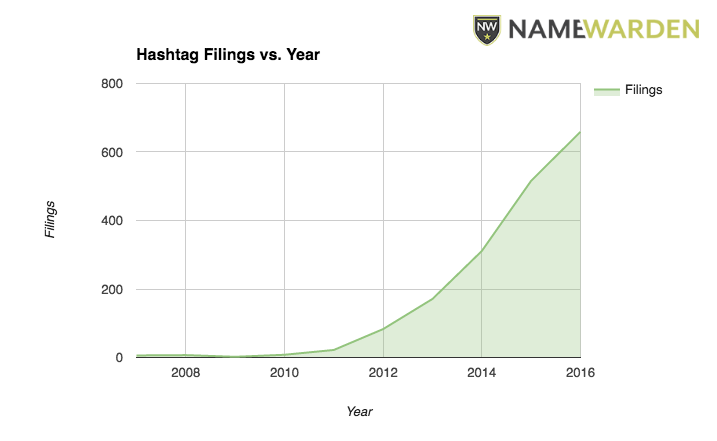A lawyer listing no client applied for trademark registrations for “Washington Skins” and “Washington Pigskins” around 3:30 in the afternoon on June 18. That was the same day the U.S. Patent and Trademark Office’s Trademark Trial and Appeal Board cancelled the team’s registration for the Redskins trademark registration, finding it disparaging.
The services claimed by the applications, for use under the trademarks “Washington Skins” or “Washington Pigskins” is “Entertainment in the nature of football games.”
A California lawyer who describes himself on his web site as a general practitioner and plaintiff’s injury attorney is the applicant for registration of these two variations on the Redskins trademark.
The applications do not claim any current use of the marks “Washington Skins” or “Washington Pigskins,” but the applicant lawyer professed “a bona fide intention to use or use through the applicant’s related company or licensee the mark in commerce on or in connection with the identified goods and/or services.”
So the question is whether these “Washington Skins” or “Washington Pigskins” applications were done on behalf of the team, or were filed without the team’s involvement. If the applicant attorney is filing not on behalf of the NFL franchise, it makes one wonder whether he is planning to hold the marks for monetary gain by inserting his applications ahead of any that the team might file for these variations on the Redskins trademark.
Here is the data from the applications:
___________________
For the WASHINGTON SKINS mark:
To the Commissioner for Trademarks:
MARK: Washington Skins (Standard Characters, see mark)
The literal element of the mark consists of Washington Skins.
The mark consists of standard characters, without claim to any particular font, style, size, or color.
The applicant, Ronald H. Blumberg, a citizen of United States, having an address of
137 N Acacia Abe
Solana Beach, California 92075
United States
requests registration of the trademark/service mark identified above in the United States Patent and Trademark Office on the Principal Register established by the Act of July 5, 1946 (15 U.S.C. Section 1051 et seq.), as amended, for the following:
For specific filing basis information for each item, you must view the display within the Input Table.
International Class 041: Entertainment in the nature of football games
Intent to Use: The applicant has a bona fide intention to use or use through the applicant’s related company or licensee the mark in commerce on or in connection with the identified goods and/or services. (15 U.S.C. Section 1051(b)).
| The applicant’s current Correspondence Information: |
| Ronald H. Blumberg |
| 137 N Acacia Abe |
| Solana Beach, California 92075 |
| 858-509-0600(phone) |
| rhb@blumberglawgroup.com (authorized) |
A fee payment in the amount of $325 has been submitted with the application, representing payment for 1 class(es).
Declaration
The signatory believes that: if the applicant is filing the application under 15 U.S.C. Section 1051(a), the applicant is the owner of the trademark/service mark sought to be registered; the applicant or the applicant’s related company or licensee is using the mark in commerce on or in connection with the goods/services in the application, and such use by the applicant’s related company or licensee inures to the benefit of the applicant; the specimen(s) shows the mark as used on or in connection with the goods/services in the application; and/or if the applicant filed an application under 15 U.S.C. Section 1051(b), Section 1126(d), and/or Section 1126(e), the applicant is entitled to use the mark in commerce; the applicant has a bona fide intention to use or use through the applicant’s related company or licensee the mark in commerce on or in connection with the goods/services in the application. The signatory believes that to the best of the signatory’s knowledge and belief, no other person has the right to use the mark in commerce, either in the identical form or in such near resemblance as to be likely, when used on or in connection with the goods/services of such other person, to cause confusion or mistake, or to deceive. The signatory being warned that willful false statements and the like are punishable by fine or imprisonment, or both, under 18 U.S.C. Section 1001, and that such willful false statements and the like may jeopardize the validity of the application or any registration resulting therefrom, declares that all statements made of his/her own knowledge are true and all statements made on information and belief are believed to be true.
Declaration Signature
Signature: /Ronald H Blumberg/ Date: 06/18/2014
Signatory’s Name: Ronald H. Blumberg
Signatory’s Position: Owner
RAM Sale Number: 86313384
RAM Accounting Date: 06/19/2014
________________________________________
For the WASHINGTON PIGSKINS mark:
To the Commissioner for Trademarks:
MARK: Washington Pigskins (Standard Characters, see mark)
The literal element of the mark consists of Washington Pigskins.
The mark consists of standard characters, without claim to any particular font, style, size, or color.
The applicant, Ronald H. Blumberg, a citizen of United States, having an address of
137 N Acacia Ave
Solana Beach, California 92075
United States
requests registration of the trademark/service mark identified above in the United States Patent and Trademark Office on the Principal Register established by the Act of July 5, 1946 (15 U.S.C. Section 1051 et seq.), as amended, for the following:
For specific filing basis information for each item, you must view the display within the Input Table.
International Class 041: Entertainment in the nature of football games
Intent to Use: The applicant has a bona fide intention to use or use through the applicant’s related company or licensee the mark in commerce on or in connection with the identified goods and/or services. (15 U.S.C. Section 1051(b)).
The applicant’s current Correspondence Information:
Ronald H. Blumberg
137 N Acacia Ave
Solana Beach, California 92075
858-509-0600(phone)
rhb@blumberglawgroup.com (authorized)
A fee payment in the amount of $325 has been submitted with the application, representing payment for 1 class(es).
Declaration
The signatory believes that: if the applicant is filing the application under 15 U.S.C. Section 1051(a), the applicant is the owner of the trademark/service mark sought to be registered; the applicant or the applicant’s related company or licensee is using the mark in commerce on or in connection with the goods/services in the application, and such use by the applicant’s related company or licensee inures to the benefit of the applicant; the specimen(s) shows the mark as used on or in connection with the goods/services in the application; and/or if the applicant filed an application under 15 U.S.C. Section 1051(b), Section 1126(d), and/or Section 1126(e), the applicant is entitled to use the mark in commerce; the applicant has a bona fide intention to use or use through the applicant’s related company or licensee the mark in commerce on or in connection with the goods/services in the application. The signatory believes that to the best of the signatory’s knowledge and belief, no other person has the right to use the mark in commerce, either in the identical form or in such near resemblance as to be likely, when used on or in connection with the goods/services of such other person, to cause confusion or mistake, or to deceive. The signatory being warned that willful false statements and the like are punishable by fine or imprisonment, or both, under 18 U.S.C. Section 1001, and that such willful false statements and the like may jeopardize the validity of the application or any registration resulting therefrom, declares that all statements made of his/her own knowledge are true and all statements made on information and belief are believed to be true.
Declaration Signature
Signature: /Ronald H Blumberg/ Date: 06/18/2014
Signatory’s Name: Ronald H. Blumberg
Signatory’s Position: Owner
RAM Sale Number: 86313435
RAM Accounting Date: 06/19/2014
Name Warden gives you unlimited dockets and three free defensive marks for only $275 per year. Try it now for free—no credit card required.
Client Finder gives you current lists of trademark applicants who could need an attorney right now. Subscribe monthly—cancel anytime.
 in Matal v. Tam. This Supreme Court battle was an appeal to reverse the USPTO’s decision to deny the trademark application for the mark “The Slants”. Registration for the Slants trademark was refused by the USPTO for violating the Lanham Act’s disparagement clause. The Supreme Court ruled that ultimately the government may not refuse to register potentially offensive names.
in Matal v. Tam. This Supreme Court battle was an appeal to reverse the USPTO’s decision to deny the trademark application for the mark “The Slants”. Registration for the Slants trademark was refused by the USPTO for violating the Lanham Act’s disparagement clause. The Supreme Court ruled that ultimately the government may not refuse to register potentially offensive names.


